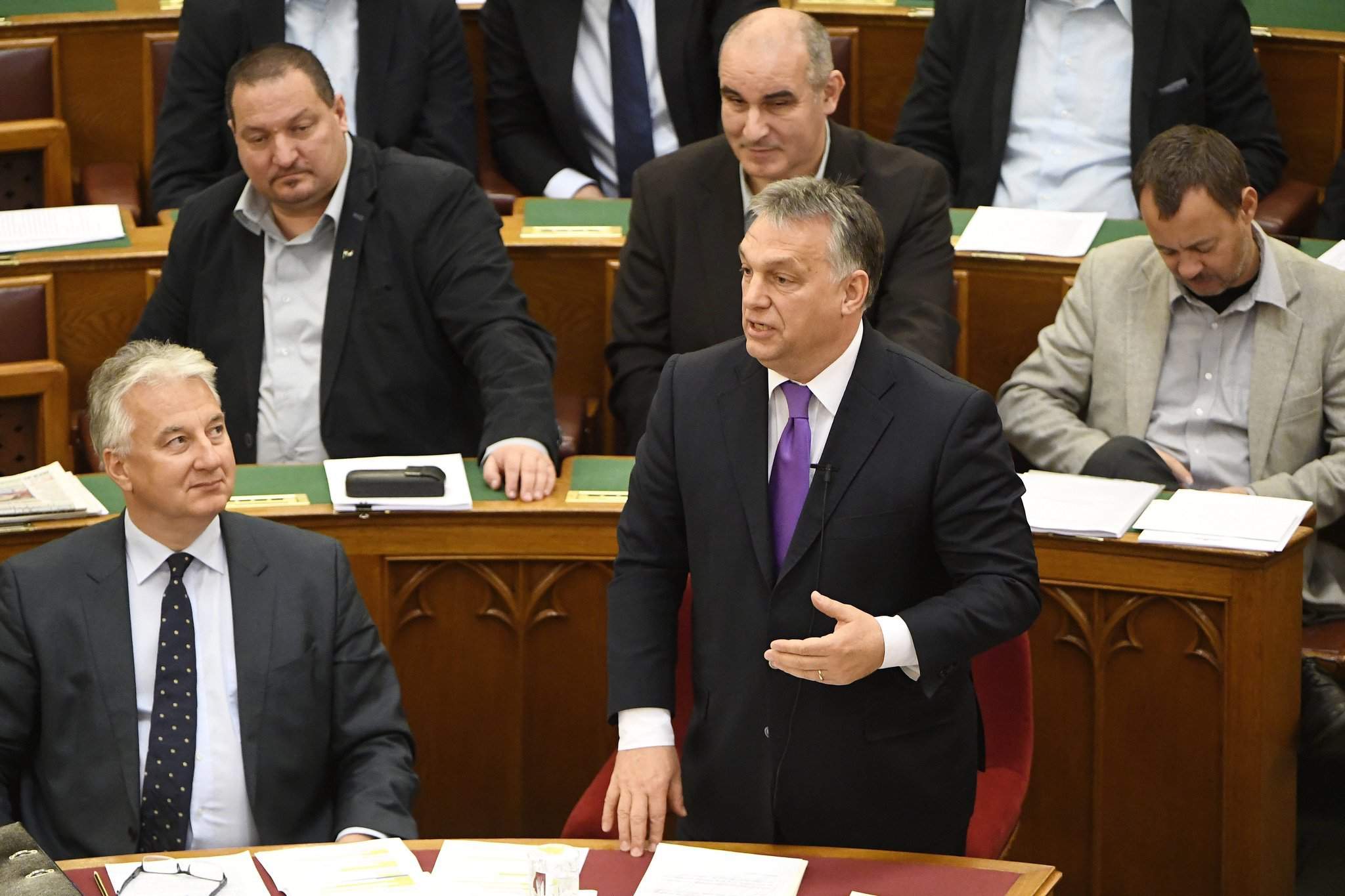Orban: Labour-based economy successful
Budapest, November 21 (MTI) – Hungarian Prime Minister Viktor Orbán hailed Hungary’s labour-based economic model as a “success” in a pre-recorded interview to public radio aired on Monday.
Orban said the foundations of Hungary’s economy and financial system are stable enough to handle a significant increase in the minimum wage and a decrease in the corporate tax rate.
“The reason why we could implement these measures now is because we have done the work. Hungary’s economic model, the labour-based economy, is successful. We’ve always believed in it and now the outside world acknowledges it, too,” Orbán told Kossuth Radio.
The prime minister said the government was now preparing to implement the next phase of its economic model, adding that Economy Minister Mihály Varga had been tasked with negotiating a “six-year economic plan” with employer and employee representatives.
Orbán said the government’s planned minimum wage hikes for next year were realistic goals.
The government has proposed hiking the minimum wage of unskilled workers by a 15 percent next year and a further 8 percent in 2018, while the minimum wage for skilled jobs could grow by 25 percent next year and by 12 percent in 2018.
Talks with employers about the planned hikes, however, have been “problematic” so far, Orbán said, but expressed hope that an agreement would be reached within the coming days. The economy minister has been given “room for manoeuvre” in the talks, he added.
Orbán said employers were right in saying that payroll taxes are too high and should be lowered. He noted that the economy minister had proposed a six-year plan to businesses for lowering payroll taxes. Orbán said Hungarian businesses had never been given such an offer over the past 30 years. He said that if businesses have to pay less in payroll taxes, they would be able to pay higher wages.
If the government can reach a deal with businesses on a greater increase in the minimum wage then the higher wages and higher inflation could create room for increasing pensions, too, Orbán said. If the government’s talks are successful, pensions could be raised by 1.6 percent next year, rather than by 0.9 percent as earlier planned, he added. He said the government had kept its promise to maintain the purchasing power of pensions, raising them by at least the rate of inflation.
Asked about the government’s goal to have real wages rise by 40 percent over the next six years, Orbán said the target figure was an “acceptable starting point”. He said a 40 percent rise in real wages at the end of the six-year cycle would be a “nice success” but added that the government should aim even higher.
Orbán said the government’s plan to introduce a flat-rate 9 percent corporate tax would be advantageous for businesses. If done right, the measure will boost economic activity, generating more tax revenue, he added.
He said the government would not take measures affecting the local business tax as it provides much needed revenue for the municipalities.
Orbán said he considers Hungarians taking up jobs abroad an opportunity. He said that over the coming years, Hungarians were likely to “come and go according to where they see opportunities”, adding that the government should not restrict their right to free movement.
On the topic of Monday’s joint cabinet meeting between Hungary and Serbia, Orbán reiterated Hungary’s support for Serbia’s accession to the European Union. “The EU’s future doesn’t look bright if it doesn’t integrate countries that are qualified and able [to join the bloc] … Serbia is that kind of country,” Orbán said. The prime minister praised Serbia’s minority policy as “more than fair”. He said the Hungarian government was now looking to boost the opportunities available to Hungarian businesses in southern Serbia.
Photo: MTI
Source: MTI
please make a donation here
Hot news
What happened today in Hungary – 26 July, 2024
Drama: number of births in a 20-year low in Hungary
Yay or nay? – 6 odd Hungarian delicacies that make our skin crawl
Budapest tourism “exploded” this past weekend
Container transport in Budapest may stop: How will this affect Hungarian economy?
Minister: Hungary will protect its territory by every means possible




